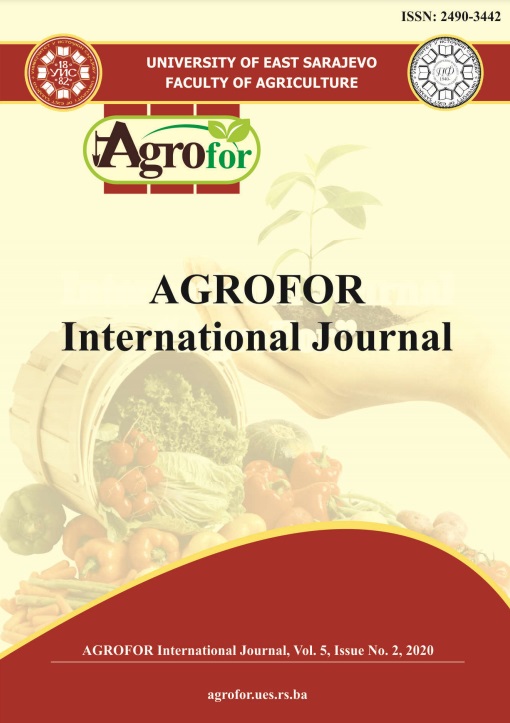THE ESTIMATION OF HEAT AND DROUGHT TOLERANCE MAIZE LINES USING DNA MARKERS
DOI:
https://doi.org/10.7251/AGRENG2002077PAbstract
The main factor which causes to decrease maize grain yield is drought. In most
regions where maize is grown, the water stress during the growing period is caused
by both lack of soil moisture and high air temperature. The purposes of our study
were the estimation and selection of maize lines for drought and heat tolerance
based on DNA markers and determination of the correlation between CAPS
markers and plant ability to resist the water stress. As the result of study, the
significant differences were found between leaf temperature of maize lines which
contained favorable alleles by both CAPS markers in 2018 and 2019 (35.72 and
34.41ºC respectively), LSD0.05=1.27. The leaf temperature of maize lines which
had SNP (A) by dhn С397 (36.95ºC) differenced significantly with lines contained
favorable allele by rspC1090 or lines with no favorable alleles in 2018 (33.68 and
34.35ºC respectively). Based on analysis by seeds germinating in sucrose solution
the significant differences were observed between the amount of sprouted seeds in
lines contained SNP(G) by rspC1090 and lines without any favorable allele (4%
and 2.25% respectively), LSD0.05= 1.70. As the result of correlation analysis, the
positive correlation was determined between SNP(A) by dhnС397 marker in maize
lines and leaf temperature in 2018-2019 (r=0.16). The positive correlation was
observed between SNP(G)byrspC1090 and the percent of sprouted seeds in sucrose
solution (r=0.31). Thus, for complex estimation and maize line selection for
drought and heat tolerance it could be recommended to use two CAPS markers
dhnC397 and rspC1090.

